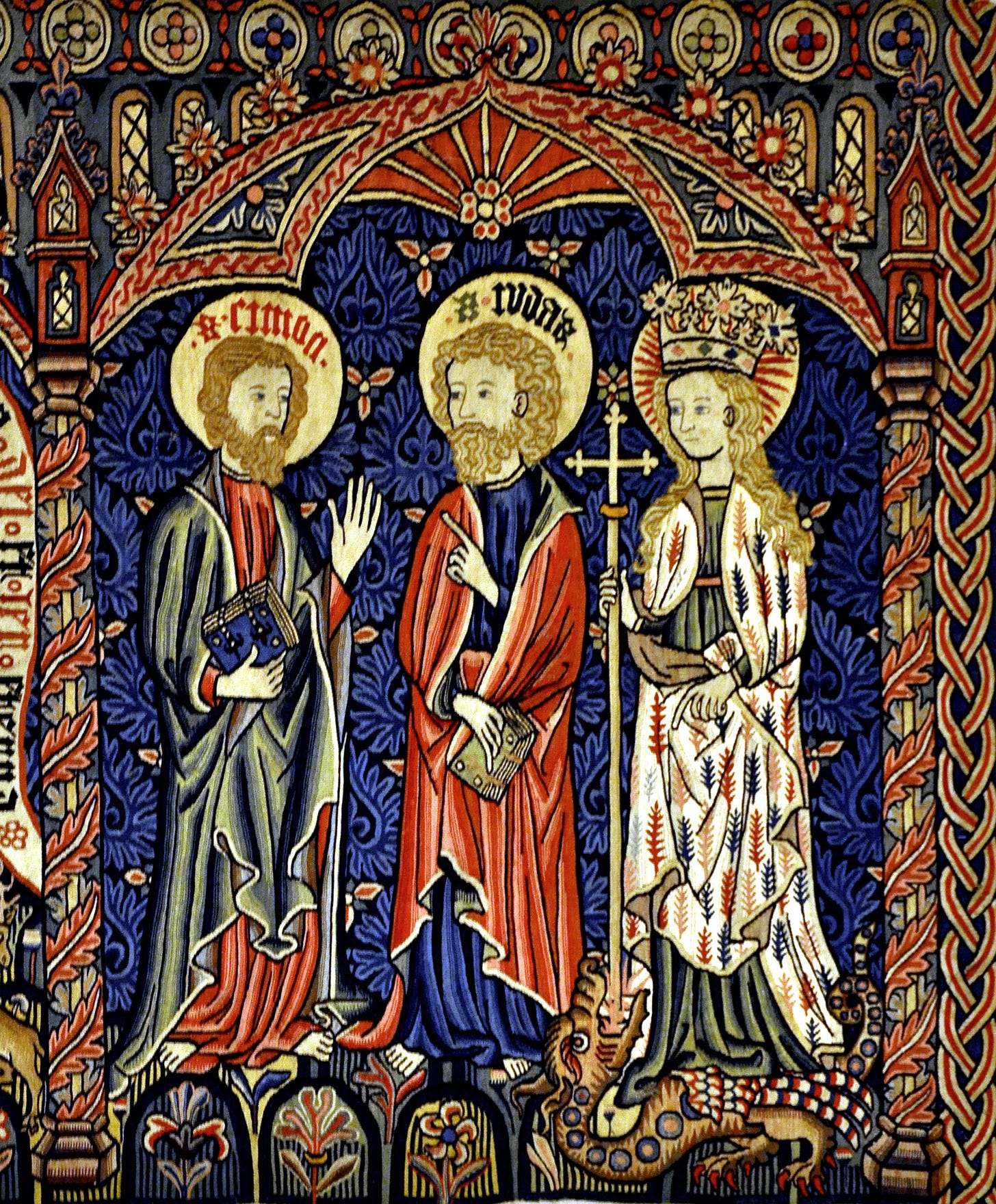Don’t tell anyone it’s St Simon & St Jude’s Day
It’s what they would have wanted
“No Action Needed”
These are three words that I love to read in an email. Currently I sit on quite a few committees relating to the Church of England. This means I attend numerous meetings, have to read various papers and make comments and decisions. It is a privilege, but also time consuming. Therefore, some of my favourite emails are those which contain the words: “No Action Needed”.
That is my message for you as we approach the Feast Day of St Simon and St Jude on 28th October, two disciples of Christ about whom very little is known. Even the traditions don’t agree or present a consistent picture. Therefore, it is unwise to be dogmatic about how these disciples of Christ should be remembered or celebrated.
This might also explain why there are only 13 Church of England churches dedicated to “St Simon & St Jude” although there are a handful of others just to St Jude and to St Simon individually.
Simon is listed in all four gospels as one of the twelve disciples. He is Simon ‘the Zealot’ and noted as being ‘from Cana’. This differentiates him from the Simon who was renamed Peter by Jesus. And that’s it. The gospel writers don’t record any of Simon’s words or actions specifically, so there is very little to go on here.
The information about Jude is similarly slight. His name is probably Judas but one can understand why translators and traditions have called him Jude in order to distinguish him from the Judas with which you do not wish to be associated.
But it gets a little confusing. Jesus also had a brother called Judas (although this may be hard to square with the doctrine of Perpetual Virginity LINK). The Judas who is the brother of Jesus may well be the author of the Epistle of Jude but who knows? We cannot be sure.
What’s more, Matthew and Mark have ‘Thaddeus’ in their list of Twelve disciples in the place of Jude or Judas. This is presumably the same person. Does that make it more or less complicated?

Together Forever
How have Simon and Jude ended up being celebrated on the same day? Early Church tradition has Simon going to Egypt to preach the gospel before joining the apostle Jude in Persia. This is written up in the apocryphal Passion of Simon and Jude, in which they are martyred together. According to one story, Simon is sawn in half, and another has his hands sawn off. This is why the saw is one of his chief iconographic symbols. However, St. Basil the Great, Cappadocian Father from the 4th Century, says that Simon died peacefully in Edessa. Nevertheless, the Simon and Jude story captured sufficient imagination to become a day on which both of these saints were remembered together.
What can we learn from Simon and Judas?
Judas – or Thaddeus – does speak in the gospel. Once. In John’s Gospel he asks Jesus:
“But, Lord, why do you intend to show yourself to us and not to the world?” (John 14:22)
Great question. Jesus responds with something profound but, as yet, I don’t understand how that answers Judas’s question. The good news is that I’ve got one year to figure that out. I have some homework to do. That’s the beauty of a calendar and an almanac. There’s always next year.
No Action Needed
But let us close with the words of Simon. Simon said nothing. This rather makes one think he wasn’t much of a Zealot after all.
Silence is a smart move by Simon. The more prominent and celebrated disciples are recorded as saying a number of foolish things. Peter, James and John are the worst offenders. At one point, Peter takes Jesus aside and rebukes him for predicting his own death – and is called ‘Satan’. James and John sidle up to Jesus and ask if they can sit next to him in glory. It’s all very embarrassing. The fact that these awkward and humiliating exchanges remain in the text can give us great confidence in their authenticity and honesty.
Simon, however, retains a masterful silence. Perhaps he knew Proverbs 17:28 which says:
Even fools are thought wise if they keep silent,
and discerning if they hold their tongues.
Perhaps he didn’t know his proverbs at all. Maybe that’s why he kept quiet about it. Either way, smart move.
So on 28th October, let us follow the example of Simon, the so-called Zealot – and say nothing.
Most noisy zealotry takes place on social media. If you want don’t want to comment, it might be best not to look as, before you know it, you’re firing off a comment. The other day, I had a quick look at Facebook (to put up a link to my Jazz Cow Kickstarter campaign). I started reading various posts by people I half know and before I knew where I was, I was halfway through typing a comment on a thread. I realised I didn’t need to say anything at all on the matter being discussed. Nobody cared what I thought – and even I didn’t care. So why say anything? I’d only check back to see what someone had said to what I had said. Where’s the value in that?
If there’s nothing to be said, why be the first person to say it? At great length? And someone how start an argument?
Let us celebrate Simon and Jude. Say nothing. No action required.
Brand New Live Show Coming Soon
I’m beavering away on a new stand-up theology show which will be touring next year. Get in touch if you want me to stop off at your church. Just ‘reply to’ this email.
Next week, I hope to have some show titles to try out on you. I know exactly what the show is: it’s a whistle-stop summary of the whole Bible in an hour, using seven Bible classic stories - Adam and Eve, David and Goliath and all that - so that non-Christians have a handle on what I’m talking about. But can I think of a title which does all that succinctly and makes it sound funny? It’s much harder than you’d think. All ideas gratefully received! Leave a comment below.
Making Assumptions
It’s Friday. Here’s the weekly article. It’s free. And will remain free. But I’d really appreciate it if you could spread the word. I like writing it. You seem to like reading it. Wouldn’t it be nice if others could enjoy it and my efforts find a wider audience? Would you consider sharing it via email or social media?



